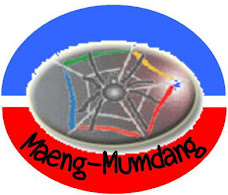Development of Efficient Knowledge management Composite Indicators
Jiracha Vicheanpanya,
Onjaree Natakuatoong
Vicharn Panich
(2006)
Keyword
1.Indicator
2.Composite
3.Knowledge management
4.Knowledge management composite indicators
เหตุผลที่เลือกงานวิจัยนี้
เป็นงานวิจัยที่ศึกษาการพัฒนาตัวบ่งชี้รวมสำหรับการจัดการความรู้ที่มีประสิทธิภาพ ซึ่งเป็นการพัฒนาตัวบ่งชี้ในการประเมินผลการจัดการความรู้ ว่าทำแล้วได้ผลดีมีประสิทธิภาพเพียงใด
1. Research Objectives
- To analyze the indicators and variables of efficient knowledge management.
- To study executives and experts opinions in regard to efficient knowledge management for Thailand.
- To propose a composite indicators of efficient knowledge management for Thailand.
2. Theory
1.Knowledge management Vision
2.Foundation
3.Transition and Behavior Management
4.Communication
5.Training and Learning
6.Knowledge Management Stages
7.Knowledge Management Process
8.Knowledge Management Enables
9.Knowledge Management Measurement
3. Conceptual framework
Independent variables
Dependent variables
-Individual
-Knowledge management team
-Leadership level
Human
-Vision/Mission statement/Strategic plan
-Belief system
-Motivational
-evaluation system
Organizational
-Information technology
-Communication technology
-Knowledge management technology
-learning technology Technology
4. Research Methodology and Statistic
This study is a qualitative research with following procedures.
4.1 Keys Informants
There are two groups of keys Informants as to indicators and variables of efficient knowledge management in Thailand.
1) Four executives who are direct responsibility for knowledge management of public and private sectors.
2) Ten knowledge management experts with following qualifications: (1) Being an executive with minimum one year experience in knowledge management of public or private agencies; (2) Being lecturer with doctorate degree or holding minimum academic position as an associate professor; (3) Being independent scholar with knowledge management experience of Thailand.
4.2 Instrument Used for Data Collection
The researcher uses semi-structure interview questions for depth-interview made with immediate executives responsible for organizational knowledge management as to indicators, variables , and best practices of efficient knowledge management in Thailand.
4.3 Data Collection
3.1 The dept-interview will be used with four immediate executives responsible for knowledge management of public and private sectors.
3.2 The focus group interview will be used with ten knowledge management experts.
4.4 Data Analysis
The researcher will rely upon content analysis and construct conclusion by inductive method.
5. Research result
5.1 Context indicator is external environment that having an effect on knowledge management, i.e. economic, political, social, and technology indicator.
5.2 Input indicator for efficient knowledge management can be divided into: (1) human indicator, relate to individual, knowledge management team, and leaders; (2) organization indicator, relate to vision/ mission/goal/strategy, value/belief system/organization culture, Information technology and communication, motivation and rewarding and evaluation.
5.3 Process indicator can be divided into: (1) human development indicator, relate to individual, group, and leadership development; (2) organizational development indicator such as change management, communication, training and learning, and knowledge management activities and processes.
5.4 Out indicator is consequence of knowledge management relate to human capital, and organizational capital such as work process improvement, new knowledge/products/services, and relationship.
 เมื่อวันที่ 27-28 กันยายน 2550 เนื่องจากได้ศึกษารายวิชา เครื่องมือการจัดการสำหรับการจัดการความรู้ กำหนดให้นักศึกษาฝึกการบูรณาการความรู้ โดยใช้เครื่องมือสำหรับการจัดการความรู้ จากทฤษฏีไปสู่การปฏิบัติเพื่อก่อให้เกิดประสิทธิภาพและประสิทธิผลในการดำเนินกิจกรรม โดยให้นักศึกษาจัดกิจกรรมในรูปแบบต่าง ๆ
เมื่อวันที่ 27-28 กันยายน 2550 เนื่องจากได้ศึกษารายวิชา เครื่องมือการจัดการสำหรับการจัดการความรู้ กำหนดให้นักศึกษาฝึกการบูรณาการความรู้ โดยใช้เครื่องมือสำหรับการจัดการความรู้ จากทฤษฏีไปสู่การปฏิบัติเพื่อก่อให้เกิดประสิทธิภาพและประสิทธิผลในการดำเนินกิจกรรม โดยให้นักศึกษาจัดกิจกรรมในรูปแบบต่าง ๆ




.jpg)








